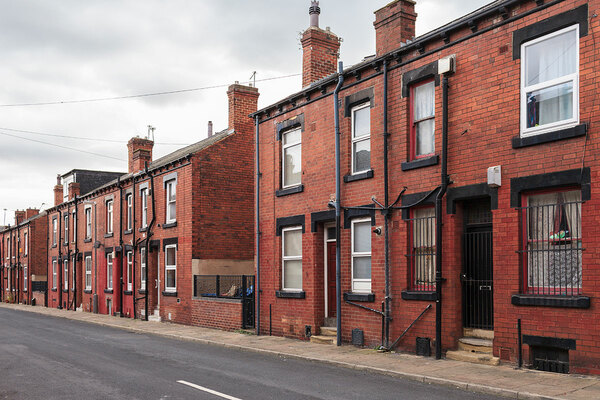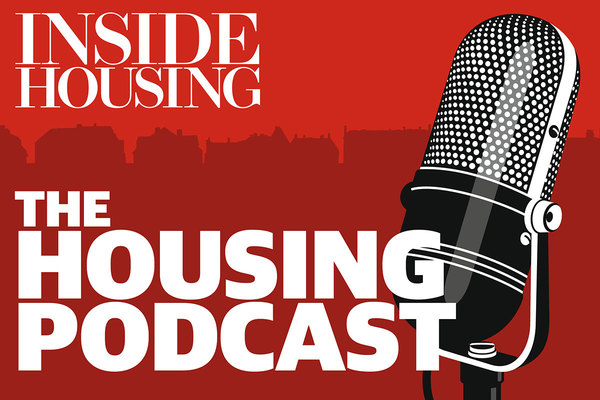You are viewing 1 of your 1 free articles
Government must do more to tackle the exempt accommodation sector
A new report has highlighted failings in the often under-regulated exempt accommodation sector. With so many vulnerable people having nowhere else to turn, the next government must start taking responsibility, argues Ashley Horsey
As the housing crisis deepens, and affordable, supported housing becomes more and more scarce, it is tempting to assume that a roof over someone’s head is a problem solved.
But recent reports of at-risk teenagers living in unregulated homes and repeated deaths in homeless hostels show just how dangerous these assumptions are.
Recent research shows that government is yet to learn from these cases, with vulnerable people still being housed in largely unregulated, or under-regulated, properties across the country.
These properties are part of the ‘exempt’ accommodation sector, where operators provide some level of support but it is not commissioned by the local authority. This sector is housing more and more homeless people as well as those experiencing housing instability.
To many this is good news, insofar as it provides shelter for those who may otherwise be out on the streets.
But new research published by the University of Birmingham, Spring Housing and Commonweal Housing has found that this sector is largely untracked, unmonitored and unregulated – putting the many vulnerable residents it houses at risk.
The Exempt from Responsibility? report found that over 11,000 vulnerable people are living in this kind of accommodation in Birmingham alone, in addition to thousands more across the country.
It outlined what it called an “accountability deficit” in this accommodation, whereby it is effectively unregulated by the government.
The Department for Work and Pensions (DWP) requires providers of this type of housing to meet only a loose requirement to provide “care, support or supervision” to its clients. This allows them to be ‘exempt’ from the provisions of housing benefit and Universal Credit regulations. Consequently, they charge rents well in excess of Local Housing Allowance (LHA). At the same time, much of this accommodation is outside local authority control.
This worrying lack of oversight from local and national government over standards within some of these properties is putting vulnerable tenants at considerable risk.
Residents interviewed for the report described feeling “trapped” in financial instability, being excluded from decision-making processes within these properties, and a total lack of control over where and with whom they are housed. One resident described an appalling lack of upkeep and care: “It was dirty, filthy, rats and all sorts. Really dangerous. Never saw a staff member again after I got the keys.”
These services are often used to house vulnerable individuals, including those exiting street homelessness, leaving the criminal justice system or fleeing abusive relationships.
The business models used in this sector should raise particular alarm for local authorities. Maintaining a property’s exempt status may require providers to talk up their tenants’ vulnerabilities to justify charging higher rents for the support they provide. In an environment already lacking regulation, this trend is questionable at best and exploitative at worst.
Everyone housed in the exempt accommodation has their basic need for a roof over their head fulfilled. But this shouldn’t be sufficient for providers, regulators or local authorities, and should not leave them complacent.
Although exempt accommodation fills a much-needed gap in supported housing provision, its mere existence should not tempt us to accept poverty of standards, management or opportunities for those it shelters.
Government has been aware of the problems in this accommodation for some time now. In fact, this report comes more than a year after the Ministry for Housing, Communities, and Local Government (MHCLG) and the DWP announced plans for a “robust oversight regime” for supported housing.
“Although exempt accommodation fills a much-needed gap in supported housing provision, its mere existence should not tempt us to accept poverty of standards, management or opportunities for those it shelters”
But as we face yet another general election, this important work is at risk of being lost in the turbulence.
This report is a call for the next government – whoever it is led by – to take action and address the accountability deficit in the sector once and for all. That means an oversight regime with clear measures, including stronger criteria in the housing benefit and Universal Credit regulations, and stronger powers for the Regulator of Social Housing.
The exempt accommodation sector is a vital component of housing provision in the UK. With attentive regulation and diverse, thorough provision the sector can – and must – act as a legitimate and safe option for everyone who needs it.
I look forward to seeing the wider impact of these findings on the exempt accommodation sector with continued urgent curiosity.
Ashley Horsey, chief executive, Commonweal Housing


